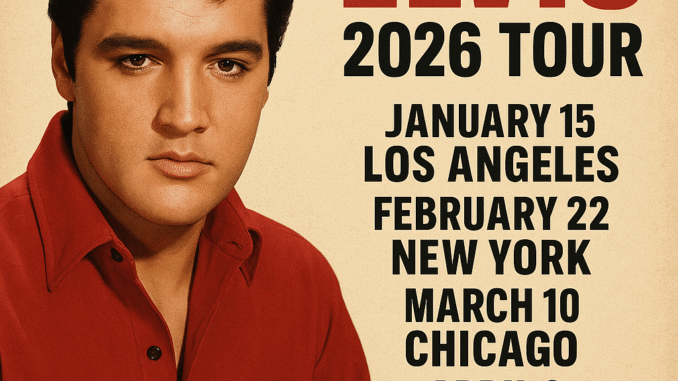
Unveiled of musical delicacy from Elvis Presley to the 2026 entertainment journey
The evolution of musical delicacy, from the legendary Elvis Presley to the anticipated entertainment landscape of 2026, reflects a dynamic journey of artistic innovation, cultural shifts, and technological advancements. Elvis Presley, often hailed as the “King of Rock and Roll,” revolutionized the music industry in the 1950s with his charismatic presence and groundbreaking blend of country, gospel, and rhythm and blues. His unique style not only challenged societal norms but also laid the foundation for modern pop and rock music, making him an enduring icon whose influence persists today.
Presley’s early recordings captured the raw energy and rebellious spirit of a generation, bridging racial divides and inspiring countless artists. His iconic hips, soulful voice, and pioneering spirit transformed the entertainment scene, proving that music could be both commercially successful and culturally impactful. As the decades progressed, the music industry evolved, embracing new genres and technological innovations—from the advent of stereo sound to the rise of MTV in the 1980s—each shaping the way audiences experienced music.
Fast forward to the 21st century, technological advancements like digital recording, streaming platforms, and AI-driven music production have democratized access to music creation and distribution. Artists such as Beyoncé, Drake, and Billie Eilish have pushed boundaries, blending genres and experimenting with visual and auditory storytelling. The rise of social media has also transformed artist-fan interactions, fostering global communities and instant sharing of music.
Looking ahead to 2026, the entertainment journey promises even more extraordinary developments. Virtual and augmented reality will likely become integral to live performances, offering immersive experiences that transcend physical boundaries. Holographic concerts, allowing fans to see resurrected legends or new virtual artists, could become commonplace. Artificial intelligence may play a pivotal role in composing, producing, and personalizing music, creating a tailored experience for individual listeners. Moreover, blockchain technology might revolutionize music rights management, giving artists more control and fair compensation.
The future of entertainment will also be characterized by greater inclusivity and diversity. As cultural boundaries continue to blur, artists from various backgrounds will bring fresh perspectives, enriching the musical landscape. Interactive experiences, such as choose-your-own-adventure concerts or AI-driven collaborations, will redefine the traditional passive listening model into an engaging, participatory event.
In essence, the journey from Elvis Presley’s groundbreaking debut to the immersive, AI-powered entertainment of 2026 encapsulates a continuous quest for innovation and connection. It highlights how music and entertainment are not static but evolve in tandem with societal changes, technological progress, and creative ingenuity. As we look to 2026, we can expect a future where music remains a powerful force—bridging generations, transcending borders, and continually redefining what it means to experience art in the digital age.
Leave a Reply